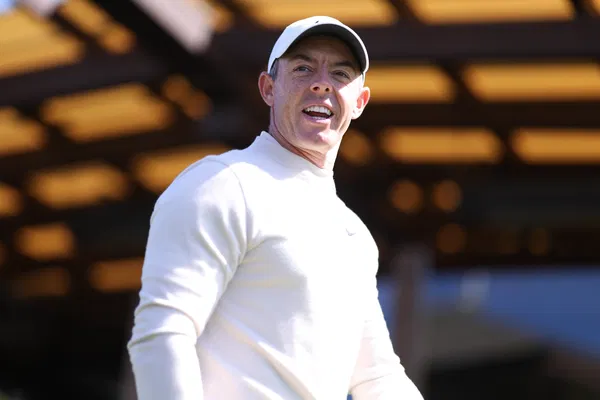
Rory McIlroy’s Post-Grand Slam Struggles: Is He Losing His Spark After Making History?
Rory Joins Golf’s Elite
Rory McIlroy has finally completed the elusive career grand slam—an achievement that defines the legacy of only the most exceptional golfers. After 18 years of pursuit, McIlroy etched his name into the record books by clinching the 2025 Masters title in a playoff, finishing with a brilliant 11-under-par 277. This historic moment made him one of just six golfers in history to win all four majors. However, since that crowning victory, Rory’s game and energy appear to have taken a sharp downturn, leaving many to wonder if he’s experiencing a post-victory slump.
A Decline in Form After Glory
McIlroy’s recent performances suggest something deeper than just poor play. On the “Foreplay Plus Podcast,” hosts Frankie, Trent, and Riggs discussed Rory’s recent form. Trent highlighted the need for intense confidence and mental sharpness to compete at Oakmont, one of the toughest courses in the world. Frankie then pointed out that Rory might be suffering from a motivational crash after finally achieving his lifelong goal. Citing Rory’s dismal 11-over-par 81 score, he questioned whether the internal fire that once drove McIlroy was now extinguished. “Once that pressure and stress lift, something inside shifts,” he observed, noting that the weight of chasing the grand slam may have actually helped Rory perform at his peak.
Rory’s Own Words Paint a Picture
When asked what his goals were following the grand slam, McIlroy admitted to feeling directionless. “I don’t have one. I have no idea,” he said. “I’m just taking it tournament by tournament… just trying to find the motivation to go back out there.” This sense of drift seems to explain why his form has plummeted in the weeks since Augusta.
He skipped the Memorial Tournament—breaking a long-standing tradition of participation dating back to 2017—without notifying his friend and tournament host Jack Nicklaus. Then came the RBC Canadian Open, where Rory posted the worst 36-hole score of his professional career and missed the cut entirely. These moments seem to affirm the podcast hosts’ claims that something inside McIlroy has changed. Riggs concluded the segment by saying bluntly, “He’s gone, this guy, he’s just gone.”
Experts Share Their Concerns
A post from NUCLR Golf highlighted the growing concerns about McIlroy’s motivation. Even fans began to question his mental state and competitive fire. In response to the discussion, former Ryder Cup Captain Paul McGinley added his voice to the chorus of concern. He noted McIlroy’s unusual demeanor at a press conference, pointing out that “his eyes weren’t alive. The energy was not there.” McGinley sympathized, suggesting Rory might just need time to reset after reaching the pinnacle of his sport.
McGinley drew on his own experience, saying that playing right after a big win often left him feeling flat. The emotional and mental investment it takes to achieve something great can create an emptiness in its aftermath, even when a player shows up with the intention to compete.
Mixed Results Since the Masters
Since his grand slam win, McIlroy has played in two team and individual events: finishing tied for 12th at the Zurich Classic with Shane Lowry and tied for 7th at the Truist Championship. Yet, despite these decent showings, expectations remained sky-high—and McIlroy has struggled under their weight. At the PGA Championship, he finished in a disappointing tie for 47th.
Will Rory Pull a Bobby Jones?
The conversation inevitably circles back to whether McIlroy might be the modern-day Bobby Jones—a legend who walked away from the game at his peak. Jones, the original grand slam champion, retired in 1930 after an unmatched run of success, having won all four major championships that year before the Masters even existed. At just 28, he stepped away to pursue other ventures, including golf course design and instructional films. He later co-founded Augusta National Golf Club and the Peachtree Golf Club, leaving a legacy far beyond the scorecard.
Jones and McIlroy share notable parallels. Both started their careers at a very young age, achieved greatness early, and faced questions about what comes next after reaching their loftiest goals. While Jones famously chose retirement, some now wonder if McIlroy might be tempted to do the same—or at least take an extended break.
What’s Next for Rory?
McIlroy’s future is uncertain. While his career grand slam has sealed his legacy, the emotional vacuum that followed has left fans and experts speculating. Does he still have the hunger to compete at the highest level? Or will he, like Jones before him, step back after reaching golf’s summit?
That remains to be seen. But one thing is clear—Rory McIlroy is at a crossroads, and the golf world is watching closely.